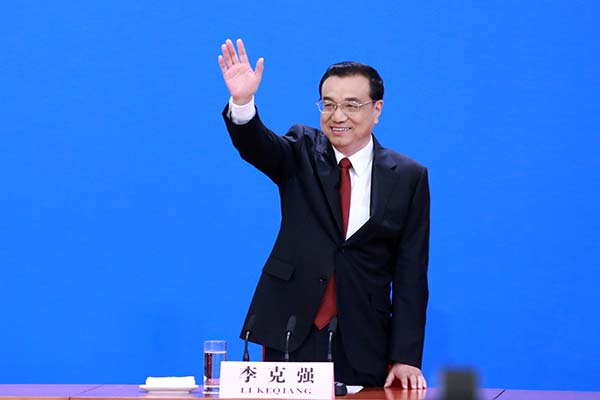|
 |
|
Chinese Premier Li Keqiang greets journalists at his press conference after the closing meeting of the fourth session of China's 12th National People's Congress at the Great Hall of the People in Beijing, capital of China, March 16, 2016.[Feng Yongbin / China Daily] |
Li stressed full regulatory coverage as well as better and more effective coordination between various regulatory agencies.
"We need full coverage of financial regulation as we are seeing an increase of innovative financial products. We also need to step up coordination as these financial products are so highly interconnected. Such coordination must be authoritative," Li told reporters at a news conference in Beijing.
The first question raised to Li was about China's financial markets, highlighting the intense public attention on the recent volatilities of the stock and currency markets.
Li said the government has the obligation to regulate the financial markets, stressing that the responsibility must be matched with the power.
"The reform of the financial regulatory framework is a process. Various government agencies must continue to perform their responsibility, otherwise they will be held accountable," Li said.
Meanwhile, Li said that China will continue to push reforms in the capital markets and establish a sound legal framework of the financial markets.
Li also said that the government will allow companies to use the debt-equity swaps to lower their leverage and reduce their debt burden.
The premier said that the government has cut the interest rates and the banks' reserve requirement ratio to reduce the financing costs for companies. But Li added these steps were not "quantitative easing" measures.
